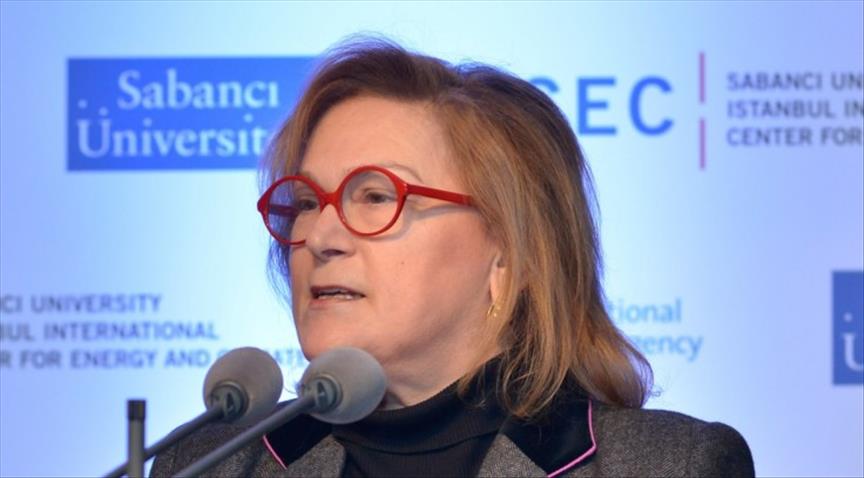Turkey should consider that it foremost priority is to achieve growth in energy demand in a safe, competitive and sustainable way, according to Guler Sabanci, the founding chairwoman of the Board of Trustees of Sabanci University.
“We have to concentrate on managing energy demand and supply in the right way. The Energy Ministry is showing significant efforts in this direction, which we support whole-heartedly,” Sabanci said, speaking at a conference organized by Sabanci University Istanbul International Center for Energy and Climate (IICEC) to present the ‘World Energy Outlook 2016’ report.
Important developments have taken place in Turkey’s energy sector in the recent past, with installed capacity doubling in the last 10 years, she noted.
Energy demand has also risen by more than an average of 4 percent in the last 10 years, significantly more the global average, Sabanci said.
She explained that over $75 billion has been invested in Turkey’s electricity sector in the last 10 years, with electricity and natural gas sectors becoming more critical than most sectors reaching a market size of about 100 billion Turkish liras.
“Most of these investments have been carried out by the Turkish private sector,” she said. “They trust that the Turkish energy sector will grow and a free market in this area will develop.”
She acknowledged that privatization efforts in energy production have been carried out, but said that progress in this area has to continue.
Privatization in the distribution sector has been completed, she said, urging that efforts to strengthen customer satisfaction in the upcoming tariff period should continue.
Turkey is not at the desired level in the liberalization of the energy retail market but is showing some signs of progress, she said, and advised that further and faster progress in this area be made as well while ensuring that benefits to consumers are offered.
These benefits could derive from the provision of a competitive pricing structure.
- Competitive, transparent market must be achieved
Turkey should work towards having a competitive market, reflecting the balance between supply and demand and efficiency and costs. To achieve this, the regulatory framework of the energy market, its competitiveness, transparency and predictability have to be strengthened, Sabanci argued.
“We should see this period of excess supply and low commodity costs as an opportunity to take brave steps in this direction,” she emphasized.
Sabanci said topics such as distributed production, smart networks, energy storage, demand management and electric cars would shape the future of the world energy sector.
“We expect global energy demand to rise by 30 percent by 2040,” Sabanci said. “The largest growth will come from renewable energy and the share of renewables are expected to rise up to 37 percent from 23 percent.” she added.
More competition, a suitable climate for investment, advanced technology and serious innovation would be the main elements for the successful transformation in energy, she affirmed.
“We expect a total of $44 trillion investment in energy by 2040 and another $23 trillion to improve efficiency,” Sabanci said and added that “a challenging future in energy, with the opportunities it presents awaits us.”
Sabanci also expressed her sorrow over the assassination of the Russian Ambassador to Ankara Andrey Karlov on Monday.
“We are very sorry the Russian ambassador lost his life in this extremely sad event,” she said. “It is our greatest wish that the close relations between Russia and Turkey will remain intact and the circumstances of this event will come to light.”
Writing by Sibel Akbay
Reporting by Zeynep Duyar Canli
sibel.akbay@aa.com.tr


